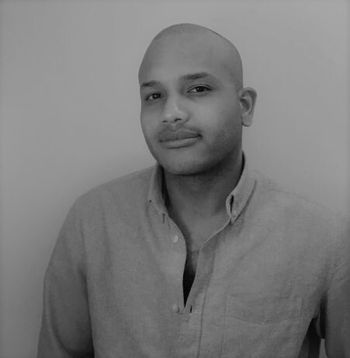Black Student Union demands segregated safe spaces 'on and off campus'
Students at DePaul University are calling on the school to provide special accommodations for Black students.
But as one scholar told Campus Reform, such demands, if enacted, would constitute racial discrimination.
Black Student Union representatives at DePaul University in Chicago are demanding new programs and spaces reserved solely for Black students and faculty.
The BSU’s demands include “healing & safe spaces for Black students on and off-campus,” despite that DePaul University previously opened cultural centers for Black, Latino, Asian American, and LGBT students. The programs would potentially violate Title VI of the Civil Rights Act, which prohibits any college receiving federal funds from enacting programs that discriminate on the basis of race.
The BSU also called on DePaul to limit administrative positions in its healing and safe spaces to “Black faculty and staff.”
[RELATED: UMich hosts space for ‘students that do not identify as persons of color’]
“The letter was inspired by the quick response from DePaul to the coup attempt in comparison to their slow and lackluster responses to the protests of the summer in 2020,” two BSU representatives told DePaul’s students newspaper, The DePaulia, in a joint statement. When it came to the George Floyd protests “the statements they released took several days and they were filled with unfulfilled promises, careless typos, and an overall lack of urgency.”
As an example of “careless typos,” the students cited DePaul University President Gabriel Esteban’s misnaming of Eric Garner as Eric ‘Ferguson’ in a May 29 letter he wrote to declare DePaul’s stance on police reform.
The Black Student Union also demanded “more health professionals that we as Black students can count on and feel comfortable with” and re-educating faculty on “topics relating to slavery” in new diversity, equity, and inclusion courses taught exclusively by “Black & Brown” people. The group further called for “reliable and active points of access from the student body (especially Black students) to faculty & admin.”
“Admin & faculty tend to ignore our messages and statements when we are asking for help in tasking and troubling situations,” the letter said, “We ask for timely and direct responses to our concerns and requests.”
DePaul’s Executive Director of News told The DePaulia on January 18 that college officials became aware of the BSU’s letter and is “looking to coordinate a meeting with BSU leadership to discuss their concerns further.”
[RELATED: UNLV introduces ‘Black Students Matter Healing Space’]
In a statement provided to Campus Reform, National Association of Scholars Director of Communications said, “these kinds of demands are becoming more and more outrageous,” adding that “these students must know, or at least ought to know, that hiring someone on the basis of race alone is illegal because it is an act of racial discrimination.”
The Black Student Union’s issuing of demands to its college continues a long history of undergraduate “affinity” groups demanding race-segregated accommodations as compensation for what they describe as “systemic racism.”
Similar episodes in the history of higher education were detailed in Neo-Segregation at Yale, a 2019 report by the National Association of Scholars, which described how the early history of racial preferences created the conditions for rationalizing racial segregation in the post-Brown v. Board of Education era.
For BSU representatives at DePaul University, pressuring college officials to accede to their demands is a matter of getting what they insist is owed to them.
“If DePaul administrators wish to have, and more importantly, use Black students for their image and diversity statistics, they need to comply with these demands,” they declared to The DePaulia, ”Having Black students at your institution is the bare minimum, and it should not be the finish of your attempts at diversity and inclusion.”
Follow the author of this article: Dion Pierre

